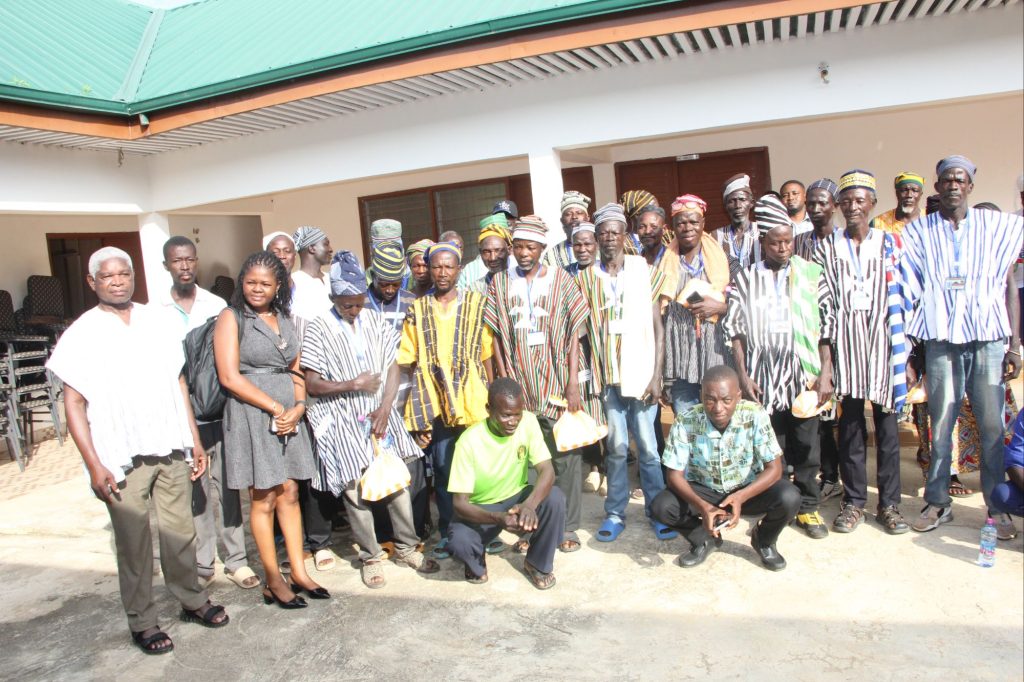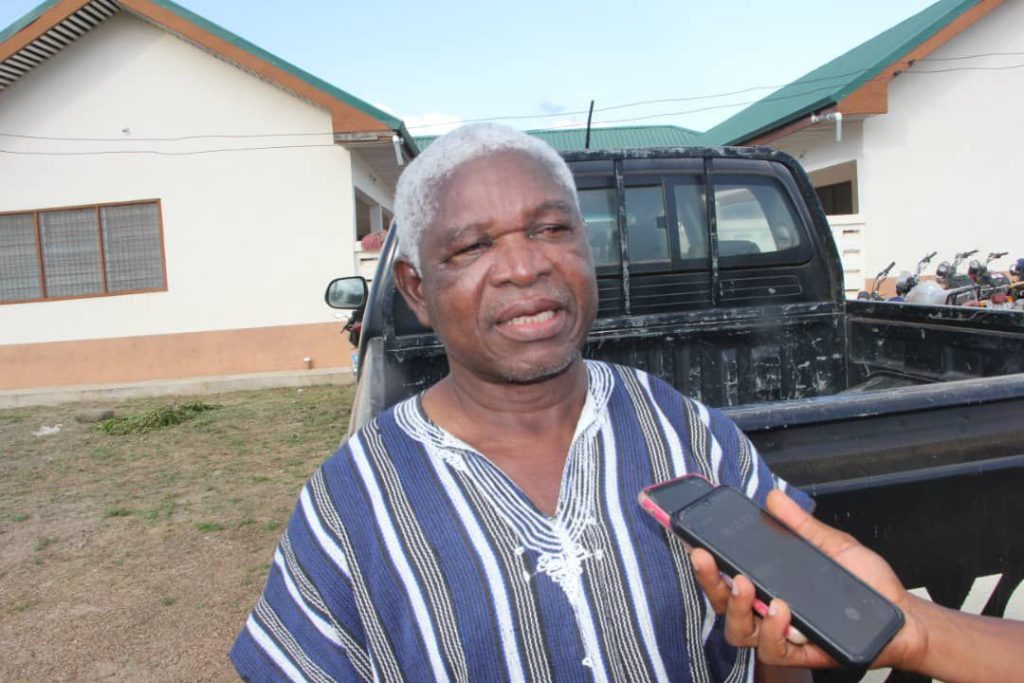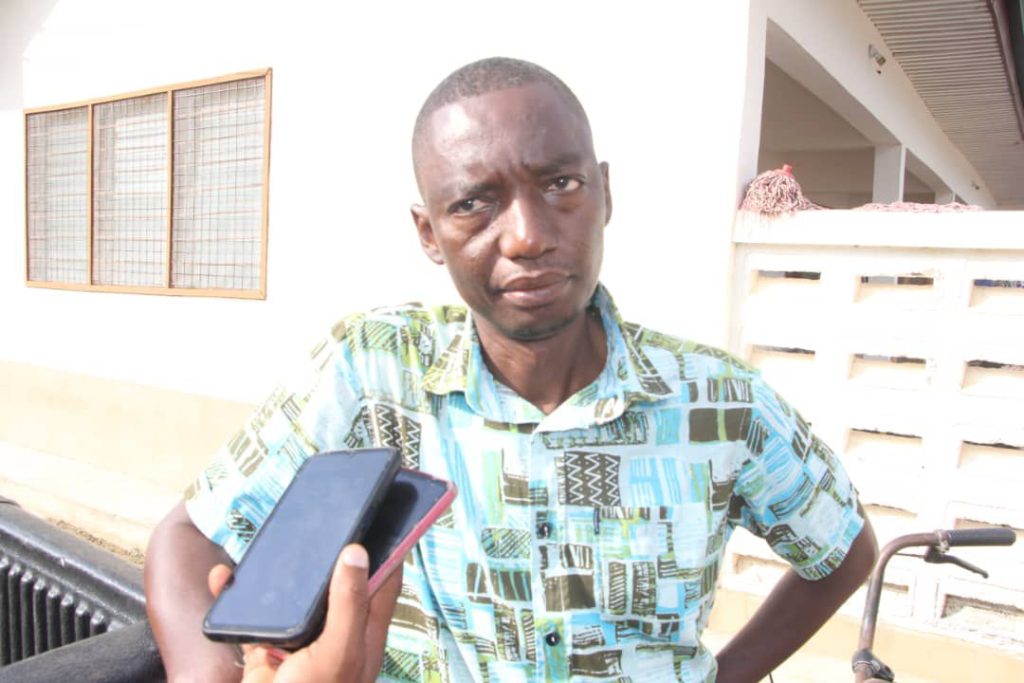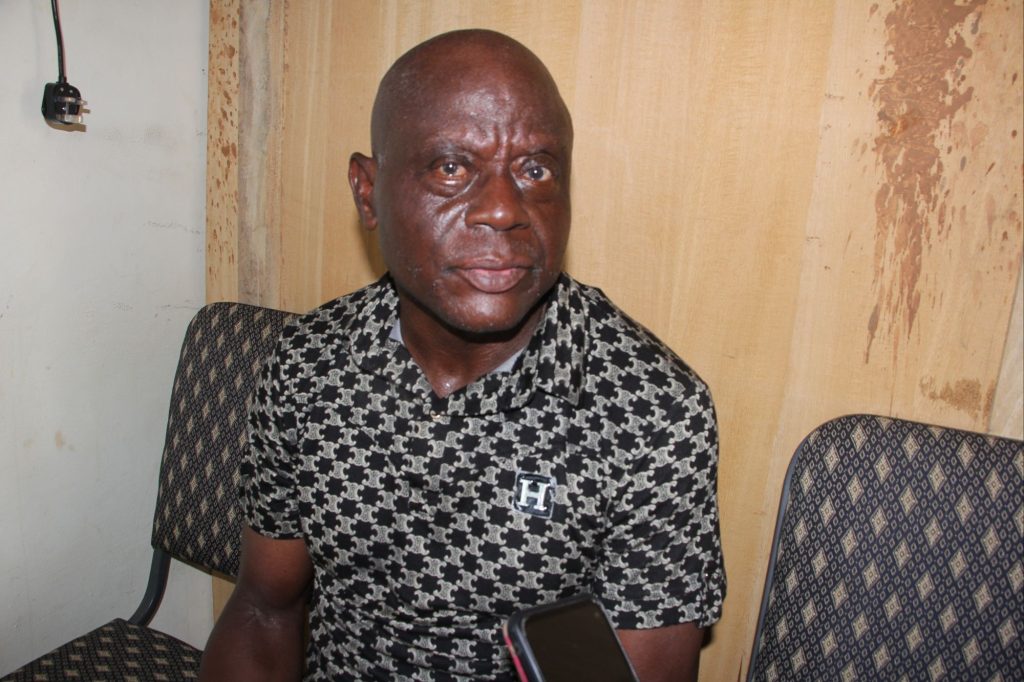
Environmental chiefs in the Bongo District of the Upper East Region of Ghana have been made aware of the dangers associated with the destruction of water bodies due to illegal mining, poor farming practices, sand winning, land degradation, and bush fires.
A two-day capacity-building program organized by the Ghana Water Resource Commission took place at the Bongo Disability Training Centre. Key stakeholders, including the Minerals Commission, Ghana National Fire Service, Forestry Commission, Ministry of Food and Agriculture, Environmental Protection Agency, and Tree Aid Ghana, participated in the event.
During the training, stakeholders educated the environmental chiefs and lead farmers on the impacts of human activities on land and water bodies. The environmental chiefs were appointed by the paramount chief of the Bongo Traditional Area, with the support of the Ghana Water Resource Commission, to promote environmental sustainability and combat the increasing destruction of water bodies, indiscriminate bush burning, and deforestation for charcoal production. They are tasked with reporting these activities to the appropriate authorities.

Mr. Aaron Bondi Aduna, Project Manager of the Blue Deal White Volta Basin for the Ghana Water Resource Commission, explained to Word News that the purpose of the training was to facilitate the delivery of safe water for drinking and agriculture. He emphasized the importance of integrated water resource management and the need to involve traditional leaders, as they play a crucial role in society. In June 2024, the paramount chief of Bongo and his 25 sub-divisional chiefs will install 25 new environmental chiefs.
Mr. Aduna noted that the training provided relevant knowledge on various aspects of the environment, including national laws and traditional bylaws that govern environmental use. The training covered the impact of agriculture, fire, and forestry on water resources, as well as other environmental concerns.

Mr. Henry Ayamba, the Bongo District Director of the Ministry of Food and Agriculture, guided the environmental chiefs and lead farmers through modern agricultural practices and organic pest control methods. He demonstrated practical ways to produce organic chemicals for pest management and composting techniques to restore soil structure, which will help protect the environment and save water bodies.

After the sessions, Mr. Dickson Achindiba, Bolgatanga District Officer for the Minerals Commission, informed the environmental chiefs about the licensing process for mining and land reclamation post-mining. He urged them to support the government’s community mining policy rather than resorting to illegal mining, which harms water bodies and land.
Mr. Achindiba cautioned that the Minerals Commission and the Environmental Protection Agency do not issue licenses for mining in water bodies and advised against such activities.
Source: mywordfmonline.com/Gaspard Ayuureneeya